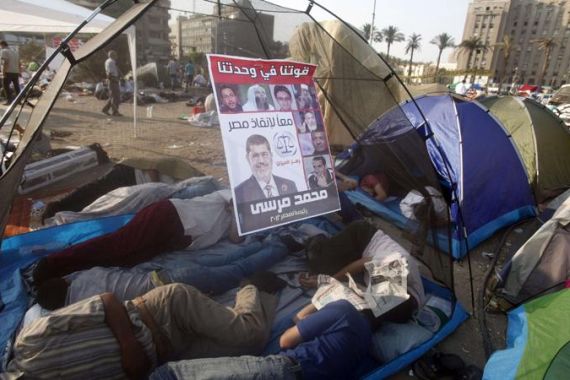Egypt: The source of power
The realities behind the constitutional amendments imposed by Egypt’s Supreme Council of Armed Forces.

The tents and canvas shelters are once again appearing in Cairo’s Tahrir Square. The traffic as yet has not been affected, but protestors are beginning to prepare for a long stay.
The primary reason is a series of constitutional amendments introduced recently by the Supreme Council of Armed Forces (SCAF), in which it assumes the full legislative power of a parliament declared dissolved.
The amendments state that only limited executive powers will be ceded to the country’s new president, when the Supreme Presidential Election Commission completes its remarkably exhaustive investigation into claims of electoral fraud and announces a winner.
Slipped almost unnoticed among the amendments though is one that could provoke a massive national crisis. It declares that in the absence of parliament the new president must take his oath of office in front of Egypt’s Supreme Constitutional Court.
It would appear that Mohamed Morsi’s legal advisers have spotted this for what it is- a blindingly brilliant trap set for the Muslim Brotherhood leader should he indeed be declared the winner.
Simply put, to take an oath in front of the court would be to implicitly recognize the constitutional authority of the body that wrote the amendments, SCAF, and at the same time it would acknowledge the legal correctness of the Supreme Court in endorsing these amendments.
In one fell swoop, any basis for constitutional disputes with SCAF, and the court, would fall away.
The Shafik campaign has made clear their candidate would have no problem with taking the oath before the court, but there again the former air force general has taken no issue with SCAF’s exercise of legislative power either.
While not yet going public on the issue, Morsi’s advisers have said there is little chance that he would politically compromise himself by taking the oath in this way.
There are some reputable sources that are adamant the delay in announcing the winner is to give time for the issue to be quietly resolved.
The subtext of this argument is that Morsi has in fact won, and that all concerned are intent on preventing his term from beginning in a major showdown with SCAF that touches on the most basic of constitutional issues.
What this whole matter highlights too, is clarity about the real source from which SCAF draws its power.
SCAF claims to draw its legitimacy from the people, and its constitutional power from the Constitutional Declaration it made in March last year.
But it was the Constitutional Court that ultimately transformed this declaration into a de facto Interim constitution this by endorsing the 62 articles of the declaration in spite of the fact that only 11 of the articles had been approved in a popular referendum.
Each legal step by SCAF to cement its constitutional authority has received the endorsement of the Constitutional Court and, importantly, it needed this endorsement to have any claim of legitimacy.
The anger of those gathering in Tahrir Square then may be somewhat misdirected. The ultimate legal source of power in Egypt is not SCAF’s 20 generals it is the 20 judges of the country’s Supreme Constitutional Court.